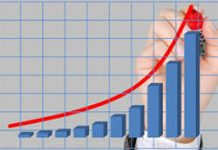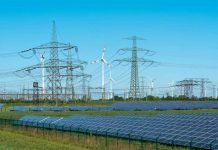According to the Third Gambia Economic Update, The Gambia’s economy has proven to be remarkably resilient in the face of global economic challenges. The nation’s real GDP grew by 4.3% in 2022 despite a weakening global economy, indicating a continued recovery from the COVID-19 pandemic’s effects.
“We are pleased to see The Gambia’s economy on a path of recovery, albeit at a subdued pace,” said Feyi Boroffice, World Bank Resident Representative. “The improved agricultural production and increased public consumption and infrastructure investment have contributed to this positive growth. However, challenges such as rising commodity prices and limited availability of manufacturing inputs have tempered the country’s overall performance.”
The report emphasizes how The Gambia’s economic development has been constrained by the weak growth in the services sector, particularly in tourism. Even though there was a rise in tourist arrivals, it was not enough to make up for the slow expansion of other subsectors. Additionally, since the nation is a net importer of commodities (food) and oil, disruptions in international trade and negative terms of trade have had a negative impact on the economy.
Inflation has been a problem for the nation, reaching decade-high levels in 2022, primarily as a result of shocks in the price of commodities globally. In response, the Central Bank of The Gambia tightened monetary policy, raising the policy rate by one percentage point to 13% in May, September, and December 2022.
The slight increase in per capita income hasn’t been sufficient to significantly reduce poverty. According to estimates, poverty has increased as a result of weaker per capita GDP growth and higher food prices, which have further reduced household purchasing power.
Future economic prospects for The Gambia are bright, with GDP expected to increase by 5.5% between 2023 and 2025. Increased economic activity across sectors, especially in industry and services, will support growth. However, threats to the nation’s economic prospects include a protracted conflict in Ukraine, fiscal slippages, climate change, and political unpredictability, which exacerbates the economy’s structural limitations already in place.
Financial inclusion, though essential for boosting economic growth, is generally low in The Gambia. The percentage of adults (15 and older) without access to a transaction account is about 69%. There are many obstacles to financial inclusion, and they come from both the supply and demand sides. Low financial inclusion makes it difficult for Gambian households and small and medium-sized businesses (SMEs) to reach their full potential for growth, success, and job creation.
“The Gambia’s economic recovery is encouraging, but there is need to address structural constraints hampering the economy, as well as the risks that lie ahead,” emphasized Ephrem Niyongabo, World Bank Economist and Author of report. “It is crucial for the government to implement policies that accelerate financial inclusion, which will enhance access to financial services and support the country’s economic growth.”
The World Bank is prepared to continue assisting The Gambia in its initiatives to boost the country’s economy, combat poverty, and promote sustainable development.

























